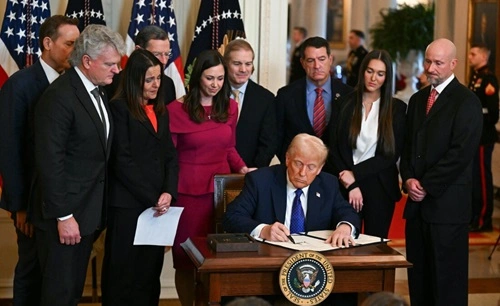The United States Supreme Court is poised to address a pivotal issue concerning the Second Amendment: the constitutionality of prohibiting felons from possessing firearms. This deliberation arises amidst a series of lower court rulings that have challenged the longstanding federal ban on firearm possession by individuals with felony convictions.
Background

Historically, federal law has prohibited felons from owning firearms, a measure upheld by courts as a means to enhance public safety. However, recent judicial decisions have questioned the blanket nature of this prohibition, particularly concerning non-violent offenders. Notably, the Third Circuit Court of Appeals ruled in favor of Bryan Range, a Pennsylvania man convicted of food stamp fraud, asserting that disarming non-violent felons infringes upon Second Amendment rights.
Supreme Court’s Involvement
The Supreme Court’s decision to hear this case signals its intent to provide clarity on the extent to which the government can restrict firearm ownership among felons. This follows the Court’s 2022 ruling in New York State Rifle & Pistol Association v. Bruen, which emphasized that firearm regulations must align with the nation’s historical traditions. The upcoming deliberation will examine whether the federal ban on felon firearm possession meets this criterion.
Implications for Gun Rights and Public Safety
The Court’s ruling holds significant implications for the balance between individual rights and public safety. Advocates for gun rights argue that non-violent felons should not be perpetually deprived of their constitutional rights, especially after serving their sentences. Conversely, proponents of strict gun control contend that maintaining the prohibition is essential to prevent potential risks associated with arming individuals with criminal histories.
Recent Developments in Lower Courts
The judicial landscape has seen varied interpretations of the Second Amendment concerning felons. For instance, the Sixth Circuit Court of Appeals upheld the disarmament of individuals deemed dangerous, suggesting that the Second Amendment permits restrictions on firearm ownership for those likely to misuse them.
Additionally, the Ninth Circuit Court of Appeals vacated a prior decision that struck down the federal ban on felon firearm possession, opting to rehear the case with a larger panel.
Historical Context
The Supreme Court’s 2008 decision in District of Columbia v. Heller acknowledged an individual’s right to possess firearms but noted that this right is not unlimited. The Court identified certain longstanding prohibitions, such as those preventing felons from owning firearms, as presumptively lawful. However, the current judicial climate, influenced by recent rulings, necessitates a reevaluation of these presumptions in light of contemporary interpretations of the Second Amendment.
Potential Outcomes
The Supreme Court’s forthcoming decision could reaffirm the federal government’s authority to impose blanket bans on firearm possession by felons or mandate a more nuanced approach that considers the nature of the offense and the individual’s history. Such a ruling may lead to legislative revisions and influence how lower courts adjudicate similar cases in the future.
Conclusion
As the Supreme Court prepares to deliberate on this critical issue, the nation awaits a ruling that will shape the contours of Second Amendment rights and inform the ongoing debate over gun control and public safety. The decision is expected to have far-reaching implications, potentially redefining the legal landscape concerning firearm ownership by individuals with felony convictions.


